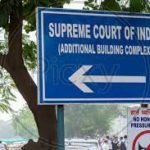The original plaintiff, identified as “the Original Plaintiff-Appellant” or “Plaintiff-Appellant No. 1”, obtained a loan of Rs. 3,15,000 from the Bihar State Cooperative Land Mortgage Bank, later referred to as “the Society”.
To secure this loan, the plaintiff mortgaged their land.
The plaintiff defaulted on the loan repayment.
Consequently, the Society initiated recovery proceedings and sold the mortgaged land through an auction to the “Original Defendants” (now “respondent No. 2”). The sale deed was dated 29.07.2009.
The plaintiff filed a suit seeking to cancel the auction sale deed, arguing that it was void and did not grant the defendants valid possession of the land. This suit was initially dismissed by the Trial Court on 28.09.2012.
The plaintiff’s subsequent appeals to the First Appellate Court and then the High Court were also dismissed, affirming the validity of the sale.
Law Involved
Bihar Self-Supporting Co-operative Societies Act, 1996 (specifically Sections 48, 52, and 53).
Section 48 addresses the creation of a charge on property for loan amounts and the Society’s power to recover these loans through the sale of such property.
Section 52 specifies that charges created under Section 48 will not be affected by the Prevention of Fragmentation and Consolidation of Holdings Act.
Section 53 outlines the rights and powers of the Society regarding recovery of dues, including the ability to take possession of and sell charged property.
Prevention of Fragmentation and Consolidation of Holdings Act, 1956. This Act generally prohibits the creation of fragments or sale of land that would result in fragmentation.
Reasoning
The plaintiff’s primary argument was that the sale deed was void as it violated the Prevention of Fragmentation and Consolidation of Holdings Act, 1956.
The courts found that the Society, as a registered co-operative body, possessed statutory powers to recover outstanding loans, which included the sale of mortgaged property.
Crucially, Section 52 of the Bihar Self-Supporting Co-operative Societies Act, 1996, explicitly states that nothing in the Fragmentation Act shall affect any charge created by the Society. This means the provisions of the Co-operative Societies Act supersede the Fragmentation Act in such cases. The court emphasised that the 1996 Act is a special legislation governing cooperative societies.
The courts determined that the sale was carried out in compliance with the procedures outlined in the Bihar Self-Supporting Co-operative Societies Act, 1996, and was therefore valid.
A significant factor in the court’s reasoning was the plaintiff’s failure to deposit the outstanding loan amount before challenging the sale. This non-compliance was seen as a failure to demonstrate their case effectively. The court noted that no order for redeposit of the loan amount was required, as the plaintiff had failed to establish their case on merits.
Holding
The Supreme Court dismissed the appeal, upholding the decisions of the lower courts.
It was held that the sale deed executed by the Society in favour of the defendants was legal and valid.
The original plaintiff’s suit for the cancellation of the sale deed was dismissed.
The decree of possession granted to the defendants was affirmed.
Machhindranath S/O Kundlik Tarade Deceased Through Lrs V. Ramchandra Gangadhar Dhamne And Others
Supreme Court: 2025 INSC 795: (DoJ 02-06-2025)






